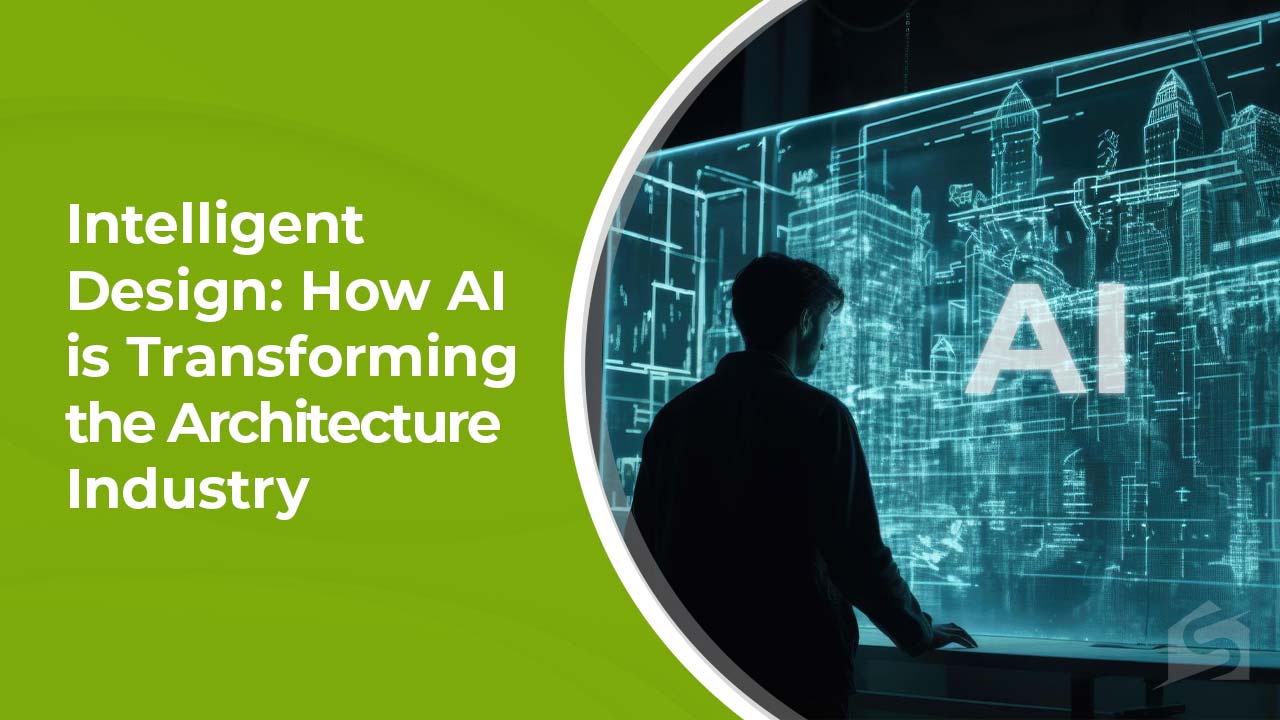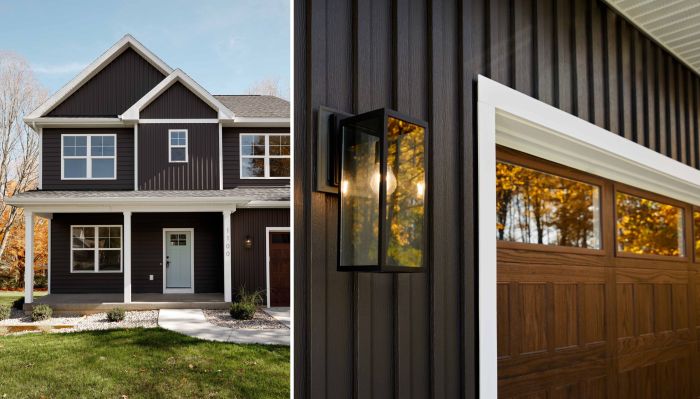How AI is changing the architecture industry
How AI is changing the architecture industry sets the stage for this enthralling narrative, offering readers a glimpse into a story that is rich in detail and brimming with originality.
The rapid advancements in AI technology have significantly impacted the architecture industry, revolutionizing the way architects design, manage projects, and promote sustainability.
Importance of AI in architecture

Artificial Intelligence (AI) is playing a crucial role in revolutionizing the architecture industry by introducing advanced technologies that streamline processes and enhance design capabilities. AI applications are changing the way architects work, allowing for greater efficiency, precision, and creativity in architectural projects.
Streamlining Architectural Processes
AI technologies are significantly reducing the time and effort required for various architectural tasks. For instance, AI-powered software can analyze vast amounts of data to generate design options based on specific criteria, helping architects make informed decisions faster. This streamlining of processes not only saves time but also improves the overall quality of architectural designs.
Enhancing Design Capabilities
AI applications are enabling architects to explore innovative design possibilities that were previously challenging to achieve. By utilizing AI algorithms, architects can generate complex 3D models, optimize building layouts for energy efficiency, and even simulate environmental factors to create sustainable designs.
These capabilities are pushing the boundaries of architectural creativity and leading to the development of more efficient and environmentally friendly buildings.
Examples of AI Applications
- Generative design software, such as Autodesk's Project Discover, uses AI algorithms to create thousands of design options based on input parameters, helping architects explore a wide range of possibilities quickly.
- AI-powered virtual assistants, like IBM's Watson Assistant, can assist architects in researching building materials, analyzing site conditions, and providing real-time feedback during the design process.
- Machine learning algorithms are being used to analyze historical data on building performance to optimize future designs for energy efficiency, occupant comfort, and sustainability.
Overall, the importance of AI in architecture lies in its ability to enhance efficiency, creativity, and sustainability in architectural practices, ultimately shaping a more advanced and innovative industry.
AI-driven design solutions
AI is revolutionizing the design phase of architectural projects by providing architects with advanced tools and algorithms to enhance creativity and optimize workflows.
AI Tools for Designing Innovative Structures
AI tools like generative design software and parametric modeling tools are widely used by architects to create innovative and complex structures. These tools allow architects to explore a wide range of design options quickly and efficiently, helping them come up with unique solutions that may not have been possible through traditional methods.
Optimizing Design Workflows with AI Algorithms
AI algorithms analyze vast amounts of data to identify patterns and trends, helping architects make informed design decisions. By automating repetitive tasks and streamlining the design process, AI optimizes workflows, saving time and resources. Additionally, AI algorithms can generate design variations based on specified parameters, enabling architects to explore different possibilities and push the boundaries of creativity in architecture.
Sustainable architecture with AI
AI plays a crucial role in advancing sustainability within the architecture industry. By leveraging AI-driven design solutions, architects can create environmentally friendly buildings that reduce energy consumption, minimize waste, and promote sustainable practices.
AI in Energy-Efficient Building Design
- AI algorithms can analyze vast amounts of data to optimize building designs for energy efficiency, such as incorporating natural lighting, ventilation systems, and renewable energy sources.
- By simulating different scenarios, AI can help architects identify the most energy-efficient solutions for a building, leading to reduced carbon emissions and operational costs.
- AI-powered tools can also monitor and adjust building systems in real-time to maximize energy efficiency and sustainability performance over time.
AI Applications in Sustainable Material Selection
- AI can assist architects in selecting sustainable materials for construction by analyzing factors such as material composition, environmental impact, and life cycle assessment.
- Through machine learning algorithms, AI can recommend eco-friendly alternatives to traditional building materials, promoting sustainability in construction practices.
- AI tools can also predict the performance and durability of sustainable materials, ensuring long-term environmental benefits for the built environment.
AI-Driven Urban Planning for Sustainable Cities
- AI is revolutionizing urban planning by optimizing city layouts, transportation systems, and infrastructure to reduce carbon footprints and enhance quality of life for residents.
- By analyzing data on traffic patterns, air quality, and energy consumption, AI can help architects design sustainable cities with efficient resource management and reduced environmental impact.
- Through AI-powered simulations, architects can visualize the long-term effects of urban development on sustainability goals, enabling informed decision-making for sustainable city planning.
Enhanced project management through AI

AI technologies have revolutionized project management in the architecture industry, offering a wide range of benefits in terms of efficiency, accuracy, and cost-effectiveness. By leveraging AI tools, architects and project managers can streamline various aspects of project management, ultimately leading to improved project outcomes.
Impact of AI on project scheduling, cost estimation, and risk assessment
- Project Scheduling: AI algorithms can analyze historical project data, identify patterns, and optimize project schedules by predicting potential delays or bottlenecks. This enables project managers to allocate resources more effectively and ensure timely project completion.
- Cost Estimation: AI-based systems can analyze project requirements, materials costs, labor expenses, and other variables to provide accurate cost estimates. This helps in budget planning and cost control throughout the project lifecycle.
- Risk Assessment: AI tools can assess project risks by analyzing various factors such as weather conditions, supply chain disruptions, and regulatory changes. By identifying potential risks in advance, project managers can develop mitigation strategies to minimize project disruptions.
Benefits of integrating AI tools for efficient project delivery
- Improved Decision Making: AI technologies provide real-time data analytics and insights, enabling project managers to make informed decisions quickly and effectively.
- Enhanced Productivity: Automation of routine tasks through AI tools frees up time for project managers to focus on strategic planning and problem-solving, leading to increased productivity.
- Cost Savings: By optimizing project schedules, accurately estimating costs, and mitigating risks, AI-driven project management leads to cost savings and efficient resource utilization.
- Quality Control: AI systems can monitor project progress, identify quality issues, and recommend corrective actions to ensure high-quality project delivery.
Ultimate Conclusion

In conclusion, the integration of AI in the architecture industry marks a transformative shift towards more efficient, creative, and sustainable practices. As AI continues to evolve, its influence on architecture will only grow, shaping a future where innovation knows no bounds.
Query Resolution
How is AI revolutionizing the architecture industry?
AI is transforming architecture by streamlining processes, optimizing design workflows, and improving project management efficiency.
What are some examples of AI applications in architecture?
AI tools like generative design software, parametric modeling, and predictive analytics are being used by architects to enhance their work.
How does AI promote sustainability in architecture?
AI assists architects in designing environmentally friendly buildings by analyzing data to make informed decisions that reduce environmental impact.




